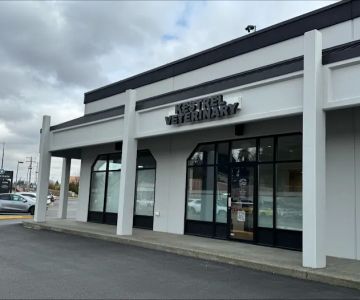Are Veterinary Surgeons Key Workers? The Essential Role of Veterinarians
Are Veterinary Surgeons Key Workers? The Essential Role of Veterinarians
- 1. What Are Key Workers?
- 2. Why Veterinary Surgeons are Considered Key Workers
- 3. Veterinary Surgeons' Role in Public Health and Safety
- 4. Real-Life Cases Where Veterinary Surgeons Played a Critical Role
- 5. Veterinary Surgeons' Impact During the Pandemic
- 6. Support and Benefits for Veterinary Surgeons as Key Workers
In times of crisis, certain professions are recognized for their essential contributions to society, providing services that maintain public health and safety. During the COVID-19 pandemic, healthcare workers received widespread recognition for their tireless efforts, but one group that often goes unnoticed is veterinary surgeons. Are veterinary surgeons key workers? This is a question that has gained prominence, especially during times of public health emergencies, as society becomes more aware of their crucial role in maintaining both animal and human health.
Veterinary surgeons, or veterinarians, have long been essential to the functioning of the public health system, ensuring the well-being of animals that are both domestic and wild. Their expertise extends beyond the care of pets; they play an important role in disease control, food safety, and environmental conservation. This article explores the role of veterinary surgeons, why they are considered key workers, and how their work directly impacts public health, particularly in times of crisis such as pandemics.
1. What Are Key Workers?
Key workers are those individuals whose roles are vital to the functioning of society and the economy, especially in times of crisis. These workers are essential for maintaining critical services, whether it be in healthcare, food production, or infrastructure. Typically, key workers include healthcare professionals such as doctors and nurses, emergency responders, and those involved in essential services such as public transport, energy, and food supply.
In the context of veterinary surgeons, key workers are defined not only by their role in animal healthcare but also by their contribution to broader public health and food security. The World Health Organization (WHO) and other public health bodies often categorize veterinary professionals as essential workers because they help prevent the spread of diseases from animals to humans, a process known as zoonotic disease control. They are also involved in ensuring the safety of the food supply chain, especially when it comes to meat and dairy products.
2. Why Veterinary Surgeons are Considered Key Workers
Veterinary surgeons are often overlooked when discussing key workers, but they provide an essential service to both humans and animals. Their expertise in diagnosing and treating animal diseases helps prevent the spread of infections to humans, especially in the case of zoonotic diseases such as rabies, avian influenza, and tuberculosis. Veterinary surgeons also play a crucial role in controlling diseases in livestock, which are essential for food production and public health.
Veterinarians are involved in public health through their work with livestock and companion animals, ensuring that the food supply chain remains safe. For instance, they work to prevent the spread of diseases such as bovine tuberculosis, which can have serious implications for both animal and human health. Through vaccination, disease surveillance, and quarantine protocols, veterinary surgeons help mitigate the risk of epidemics that could affect not only animals but also humans, especially in rural and agricultural communities.
Veterinary surgeons are also integral to animal welfare. By providing medical care to pets, they ensure that animals are healthy, preventing suffering and improving the quality of life for millions of animals. This role has been particularly important during times of crisis, where veterinary surgeons are often one of the few remaining medical professionals still available to care for pets and livestock.
3. Veterinary Surgeons' Role in Public Health and Safety
Veterinary surgeons are essential for maintaining public health through their involvement in preventing the spread of zoonotic diseases. Zoonoses, diseases that are transmitted from animals to humans, represent a significant global health risk. Veterinary surgeons play a key role in monitoring and controlling these diseases, ensuring that outbreaks are contained before they can spread to the human population.
One of the key ways in which veterinary surgeons contribute to public health is through their involvement in food safety. They ensure that the food we eat, especially animal-derived products like meat, dairy, and eggs, are free from harmful pathogens that could cause illness. Veterinary surgeons conduct regular inspections of farms, processing plants, and other facilities involved in food production to ensure that animals are treated humanely and that the food is safe for consumption.
Additionally, veterinary surgeons contribute to environmental health by working on issues related to wildlife conservation and managing diseases in endangered species. By protecting the health of wildlife populations, veterinary surgeons help preserve biodiversity and prevent the spread of diseases that could affect both animals and humans.
4. Real-Life Cases Where Veterinary Surgeons Played a Critical Role
Throughout history, veterinary surgeons have played a critical role in preventing the spread of diseases. One notable example is their involvement in controlling the outbreak of mad cow disease (BSE) in the UK during the 1980s and 1990s. Veterinary professionals worked tirelessly to track the disease in cattle, conduct research, and implement policies to protect public health. Their efforts prevented the disease from spreading further and ensured that public trust in the food supply was maintained.
Another example is the role that veterinary surgeons played in managing the avian influenza outbreaks. In many cases, veterinarians were called upon to cull infected birds, implement quarantine measures, and work with public health agencies to control the spread of the virus. Without their expertise and rapid response, these outbreaks could have led to more widespread human infections.
5. Veterinary Surgeons' Impact During the Pandemic
The COVID-19 pandemic highlighted the importance of veterinary surgeons in managing global health crises. While human healthcare workers were on the front lines fighting the pandemic, veterinary surgeons continued their work to prevent the spread of zoonotic diseases and maintain the safety of the food supply chain. The pandemic also underscored the critical role of veterinarians in managing public health during emergencies.
During the pandemic, many veterinary clinics remained open, providing essential care for pets and livestock. Veterinary surgeons also played an essential role in maintaining animal welfare by ensuring that essential services for animals, such as vaccinations and emergency care, were still available. They also worked closely with governments and health organizations to monitor potential links between animals and COVID-19 transmission.
6. Support and Benefits for Veterinary Surgeons as Key Workers
As key workers, veterinary surgeons are entitled to certain benefits and protections, particularly during times of crisis. In many countries, they are recognized for their essential contribution to public health, and some governments have provided financial support, personal protective equipment (PPE), and mental health resources to help veterinary professionals cope with the added stress during public health emergencies.
Veterinary surgeons also benefit from professional recognition in the form of continued training and research opportunities. As the world continues to face challenges such as climate change and the emergence of new diseases, veterinary surgeons will remain on the front lines of protecting public health, making their role more important than ever.
Given the essential nature of their work, veterinary surgeons should be recognized as key workers, not just in times of crisis but as a consistent part of the healthcare and food safety infrastructure. Supporting these professionals through appropriate resources and recognition is crucial for ensuring the health of both animals and humans alike.
Related Articles

Aug 20, 2025

Aug 19, 2025

Aug 19, 2025

Aug 19, 2025

Aug 19, 2025

Aug 19, 2025

Aug 19, 2025

Aug 19, 2025

Aug 18, 2025
Subscribe to Our Newsletter
Get weekly pet care tips, vet-approved advice, and updates on nearby pet stores and clinics.


